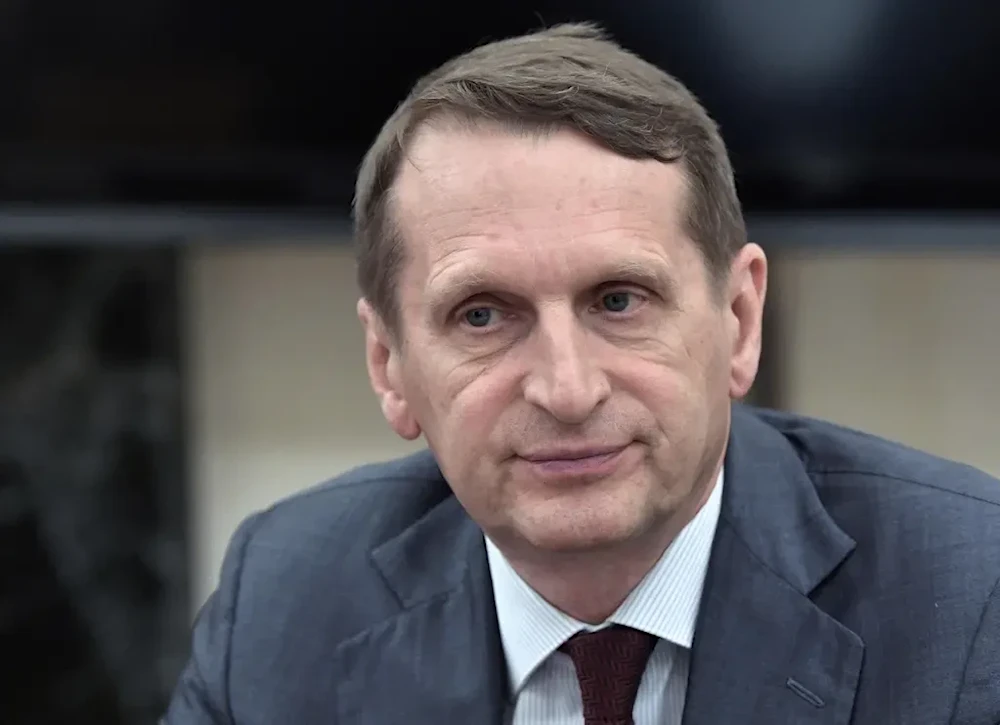Russia spy chief: World turning away from 'so-called Western values'
Russia’s SVR chief Sergey Naryshkin says the global rejection of “so-called Western values” is growing, accusing Western governments of using subtle social programs to maintain ideological influence.
-

Sergei Naryshkin, head of the Russian Foreign Intelligence Service, attends a meeting of the Commission for Military Technical Cooperation, June 24, 2019. (Alexei Nikolsky/Sputnik)
Russia’s top intelligence official has warned that global rejection of so-called Western values is intensifying, as Western governments attempt to reshape their influence operations through new, subtler strategies. The remarks come amid growing discontent with liberal Western agendas across the Global South and Eurasia.
Sergey Naryshkin, Director of the Russian Foreign Intelligence Service (SVR), said Thursday that countries around the world are increasingly repulsed by “so-called Western values.” Addressing the CIS Council of Heads of Security Agencies and Special Services in Dushanbe, Tajikistan, Naryshkin argued that Western capitals, particularly in the EU and the UK, are adjusting their political tools to maintain influence abroad.
"As repulsion with the so-called Western values is growing across the globe, officials in the leading EU capitals and London are adjusting their tools to influence the social and political life in the countries they are focused on," he stated.
"The plan is to promote the pro-Western information agenda through seemingly neutral external programs of social and humanitarian nature."
The SVR chief suggested that these efforts are designed to appear apolitical but are, in fact, aimed at embedding Western ideological frameworks in foreign societies through soft power programs.
Shift in tactics
Naryshkin added that Western governments have decided to scale back their direct promotion of certain liberal causes, which had previously been at the forefront of foreign influence strategies.
The intelligence chief’s framing reflects Moscow’s long-standing opposition to what it sees as Western attempts to impose liberal ideology under the guise of human rights or development assistance.
He further said that despite this shift in emphasis, Western actors continue to pursue strategies aimed at fomenting division and instability in targeted nations, citing Ukraine as a case study.
Nayashkin warned that “work continues [in order] to develop ways to replicate the Ukrainian scenario,” which, according to him, involves manipulating nationalist sentiment to fracture political unity.
“It provides for fueling narrow, small-town nationalism under the pretext of contributing to the strengthening of national identity, and building on that to spur social and political divisions,” he explained.
Russia has repeatedly accused Western powers of orchestrating regime-change operations or societal fragmentation in post-Soviet and Global South countries through covert channels and ideological exports.

 3 Min Read
3 Min Read










